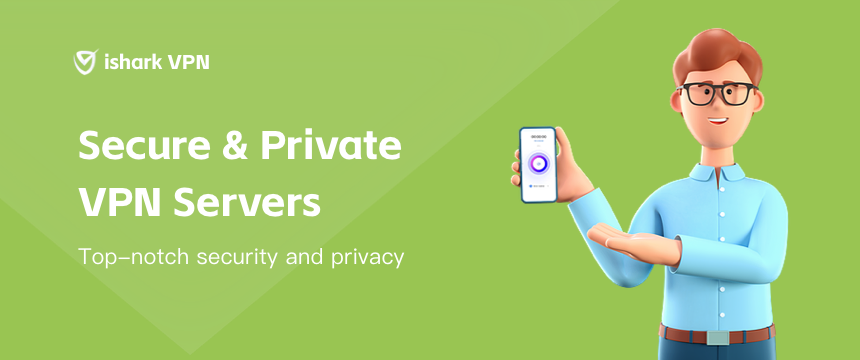VPN Applications and Challenges on Mobile Devices
ishark blog article
With the widespread adoption of mobile devices, the use of VPN (Virtual Private Network) services on these devices has become increasingly popular.
As people rely more on mobile devices for their online activities, the transmission of personal and sensitive information has also increased. Therefore, using VPN has become an essential way to protect user data security and bypass geolocation restrictions on mobile devices.
However, using VPN on mobile devices also presents some challenges, including battery life issues and network transitions.
This article delves into the applications of VPN on mobile devices, explores the challenges they may face, and provides optimization recommendations to enhance the effectiveness of using VPN on mobile devices.

VPN Applications on Mobile Devices: Data Protection and Bypassing Restrictions
1. Data Protection
With the widespread use of mobile devices in daily life and work, many users conduct sensitive data transmissions, such as logging into bank accounts, sending emails, and accessing social media, on public Wi-Fi networks.
These public networks pose security risks, and hackers may attempt to steal users' personal information. Using a VPN can encrypt users' internet traffic, ensuring data protection during transmission and effectively preventing data leaks.
2. Bypassing Geolocation Restrictions
Certain video streaming services, websites, and apps may be geographically restricted in certain countries or regions due to copyright issues or government regulations.
VPN allow users to connect to servers located in different countries or regions, changing their virtual location to bypass these geolocation restrictions.
This enables users to access global content that piques their interests, expanding their range of online entertainment and information access.
Challenges of Using VPN on Mobile Devices
1. Battery Life
Running a VPN service on mobile devices may lead to additional battery consumption. The encryption and decryption of internet traffic require extra processing, which increases the device's power consumption and may shorten its battery life.
To address battery life issues, users can adopt the following strategies:
Disconnect from the VPN when not in active use to conserve power.
Choose VPN protocols optimized for mobile devices, such as WireGuard, to reduce the impact on battery life.
Close background-running apps and processes to avoid unnecessary VPN usage.
2. Network Transitions
Mobile devices frequently switch between different networks, such as transitioning from Wi-Fi to cellular data or switching to another carrier's network during roaming. These network transitions can interrupt the VPN connection, leading to potential data leaks and access limitations.
To mitigate network transition challenges, users can consider the following measures:
Enable the VPN's automatic reconnection feature to ensure seamless reestablishment of the connection after network changes.
Choose a VPN provider with reliable and fast servers to shorten the reconnection time.
Optimization Recommendations for Mobile Device VPN Usage
1. Choose the Right VPN Protocol
Selecting the appropriate VPN protocol for mobile devices is key to optimizing VPN performance. Different VPN protocols strike a balance between security and performance.
For example, OpenVPN and IKEv2/IPSec protocols offer high security but may consume more resources. In contrast, the WireGuard protocol provides faster connection speeds and lower battery consumption, making it suitable for mobile device usage.
2. Optimize VPN Settings
Customizing VPN settings to suit mobile device usage can improve the VPN experience. For instance, users can choose whether to enable split tunneling, which determines which apps will route their traffic through the VPN and which apps will have direct internet access.
3. Regularly Update VPN Apps
Periodically updating the VPN app ensures it incorporates the latest security features and performance improvements. VPN providers often release updates to patch vulnerabilities and enhance performance.

Conclusion
VPN offer valuable applications on mobile devices, providing data protection and access to global content.
However, using VPN on mobile devices may present challenges, such as battery life issues and network transitions.
By following the configuration and optimization recommendations, users can enhance their VPN experience on mobile devices.
VPN remain an essential tool for protecting mobile data and providing broader online experiences anytime, anywhere.









